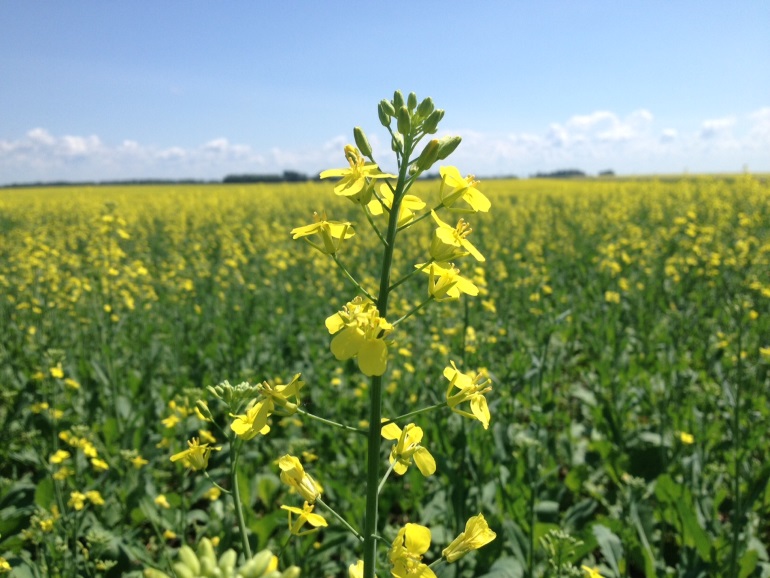As global trade dynamics shift and tariffs become more of a concern, Canada’s canola industry is looking inward.
Andre Harpe, chair of the Canadian Canola Growers Association and a farmer from Grand Prairie, Alberta, says the industry needs to focus more on renewable fuel as a strategy to support growers and build long-term resilience.
The meeting organized by Saskatchewan Premier Scott Moe brought together growers, processors, and policymakers to discuss the challenges facing the sector, from international tariffs to supply chain bottlenecks, and to explore new opportunities for growth. One of the most promising areas of discussion was the expansion of renewable fuel production using Canadian-grown canola.
The meeting involved Saskatchewan's Agriculture Minister Daryl Harrison and Minister of Trade and Export Development Warren Kaeding, as well as Saskatchewan MP Buckley Belanger, Federal Agriculture Minister Heath MacDonald, and the Parliamentary Secretary to the Prime Minister Kody Blois. There was also a cross section of members from the canola industry, the Canola Council of Canada, the Canadian Canola Growers Association, and Sask Oilseed, along with exporters and crushers (Viterra North America/Bunge, Richardson’s, Parish and Heimbecker, Louis Dreyfus Canada, AGT Foods, G3, and Paterson Global Foods).
Harpe says we're still in the early days of this situation, adding it was a good meeting with a frank discussion on the issues and impacts of the tariffs.
"Everybody needs an understanding of where we need to go and how to get there," Harpe said. "One of the things they (federal government representatives) did yesterday (Friday) is they spent more time listening than they did talking, which I thought was a great sign."
"One way to take control of our future is to put more focus on renewable fuels," Harpe explained. "Growing the biofuel industry means we can start using more of what we grow right here at home."
Harpe pointed to Imperial Oil’s newly commissioned renewable diesel refinery near Edmonton as a major step forward.
"They're just getting going, but at full capacity, they are able to take two and a half million bushels of canola a year. That's almost half of what China takes right now. They aren't planning on getting to full capacity for a long, long time just because of the renewables market, but if gets back to if we can start encouraging them to start using more canola. You know, it's an easy win for us and it's a good win."
While Harpe acknowledged that renewable fuel production won’t fully replace export markets, he sees it as a critical piece of the puzzle. "We can use more canola here, but we still have to export," he said. "We need to make sure that the infrastructure is in place to allow for an efficient flow of goods."
The push toward renewable fuels also aligns with Canada’s clean fuel regulations, which aim to reduce greenhouse gas emissions and encourage the use of low-carbon energy sources. Canola, with its high oil content and sustainability profile, is well-positioned to play a central role in that transition.
He's also calling for clearer regulations around used cooking oil: "We either have to look at banning them or put in place regulations so we know what comes from a sustainable source."
Harpe’s overall message goes back to one of the directives coming out of the meeting: 'We need to control what we can control.' That means investing in renewable fuels, improving infrastructure, and making sure our policies support Canadian growers.
